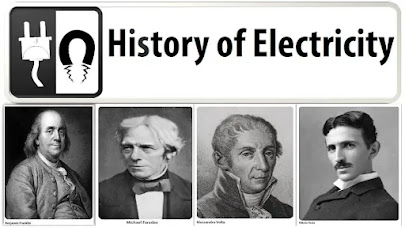Introduction
The unseen power which runs the modern world we live in, electricity, is with any doubt the among the most significant inventions in the history of humanity. Electric has changed the way humans move around and collaborate, through shining our living spaces to driving our businesses. This piece glances toward the fascinating realm of power, exploring its past, era, and revolutionary effects on human civilization.
1- The Origins of Electricity
Electric has been available from the dawn of civilization. When tiny objects were rubbed on amber, Greeks like Thales of Milieus, Greece observed something called electric static. But it was not till the middle of the seventeenth century that researchers like William Gilbert, Jr. and Otto von Guericke begin systematically investigating electrical. The work of Benjamin Franklin's seminal research in the seventeenth century proved lightning is a form of electrical. His renowned banner study proved that lightning represented an enormous surge of electricity. Benjamin Franklin's efforts were the foundation to comprehend the fundamental characteristics is lightning.
2- The Birth of Electric Power
The development of power production and distribution systems illustrates the creativity of humans. For the late nineteenth century, Thomas Edison developed an incandescent light bulb, which constituted an essential turning point in utilizing electrical for use in daily life. Edwards additionally constructed the city's original electrical power facility, bringing up a time of ubiquitous lighting. Due to its ability to efficiently carry energy above greater distances, the AC (alternating current) approach supported by Nikola Tesla and George Westinghouse finally triumphed over Edison's direct current (DC) method. That generated a structure for the creation of massive electrical relationships, that serve to supply electricity to our cities now.
1- Fossil Fuels: Coal, that can be gasoline with propane, and petroleum-based material torching in generators remained popular methods to develop fuel. This has been associated for natural issues resulting from the unintentional release of carbon dioxide and other carbon dioxide and other pollutants.
2- Nuclear Power: Atomic power stations depend on the energy which is released by the process of nuclear fission mechanisms to produces the cost of electricity. fortunately the method develops a substantial amount of electricity, it indicates inquires with regard a nuclear waste management & safety.
3- Renewable Energy: Renewable energies such as solar, wind, hydro, and the geothermal energy growing more highly sought after. The techniques described above were beneficial to the environment and long-lasting.
4- Hydroelectric Power: The motion energy of water that flows gets turned into strength by reservoirs and rotors. the hydroelectric facility power plants have a highly effectiveness & trigger extremely little or no atmospheric greenhouse gases
4- The Impact of Electricity
1- Improved Quality of Life: The act of shining, heating, and and periods of cooling are all given by electricity, attempting to the spaces we live in feel more comfortable and secure. That supplies the energy to kitchen appliances, phones and tablets, and surgical instruments, so enriching our quality for life.
2- Industrial Revolution: The availability of power changed companies boost production as well as producing limitless jobs. Machines and technologies advanced in effectiveness. contributing to the economy's expansion.
3- Communication and Information:The gradual development of electricity facilitate the creation of the invention of the the telegraph; calling radio, and, finally, following that, the website's content, who connected individuals and information from all over entire globe.
4-Transportation:Electric motors ( also known as have begun to acquire popularity as an environmentally conscious substitute to cars that run on gasoline after they decreased contaminants in the atmosphere and the release of greenhouse gases.
5- Healthcare: The supply of electricity is key in healthcare appliances ranging in size from tests for diagnostic purposes to life-saving machines like in the heart pumping devices and respiratory machines.
5- Challenges and Future Outlook
Because generators has undergone shifts the world as a whole, it was also constitutes a with it brand-new difficulties. The dependency on gasoline and oil to make up power adds to change in the climate. The deteriorating structures of electricity distribution networks raises worries surrounding solidity. shifting to more ecologically sound energy resources and updating our grids in order are critical issues of the future.
Conclusion
The unparalleled push transmitted by electricity has created the modern world. The discovery and their implementation have shaped the way we live, work, & connect with each other. In order to face one of the challenges of 21st century, continuing to advance of better and more profitable electricity production and transferring systems is going to be critical for a sustainable and electric future.






Comments
Post a Comment